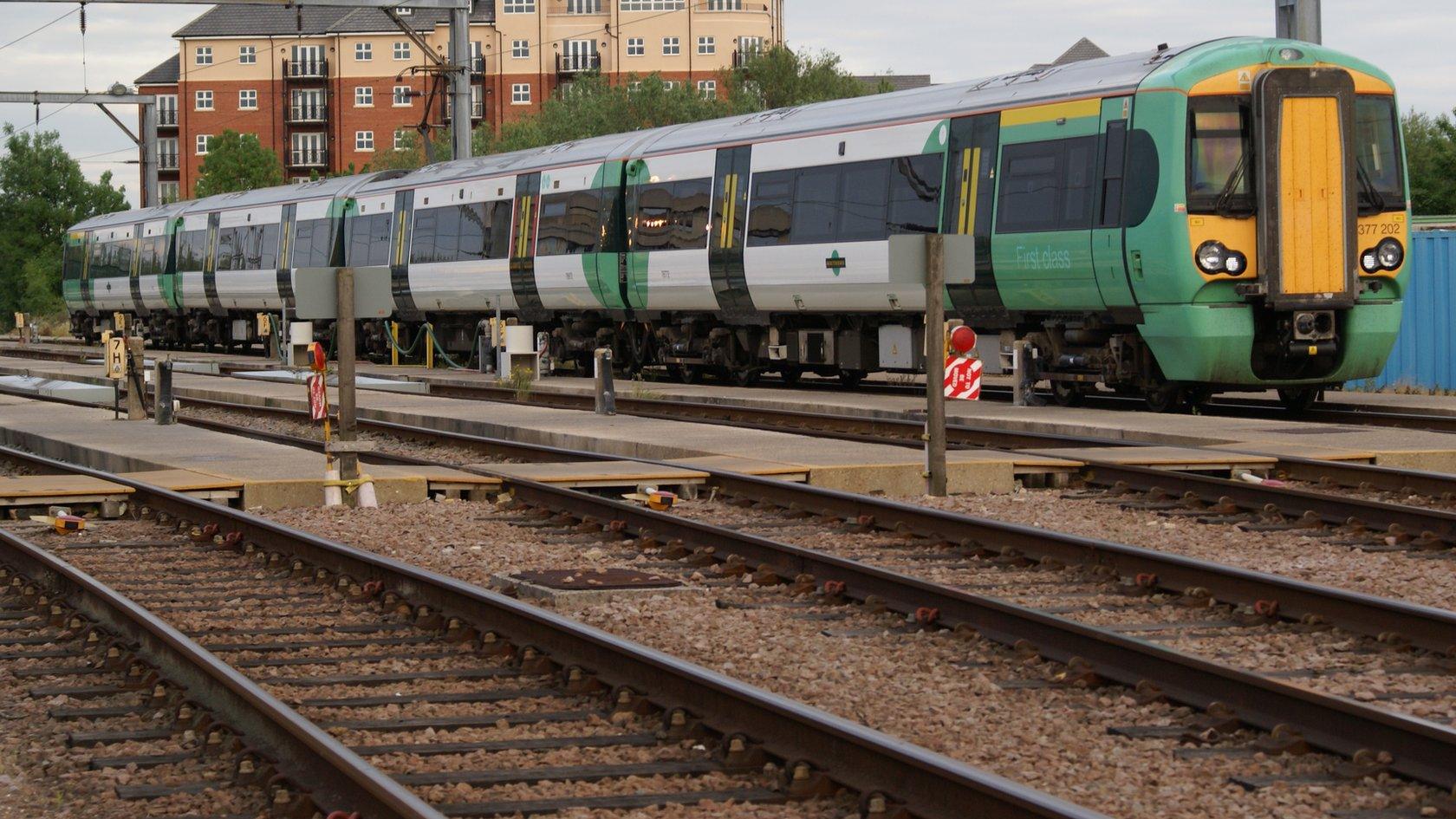Sickness among Southern rail strike conductors doubles
- Published
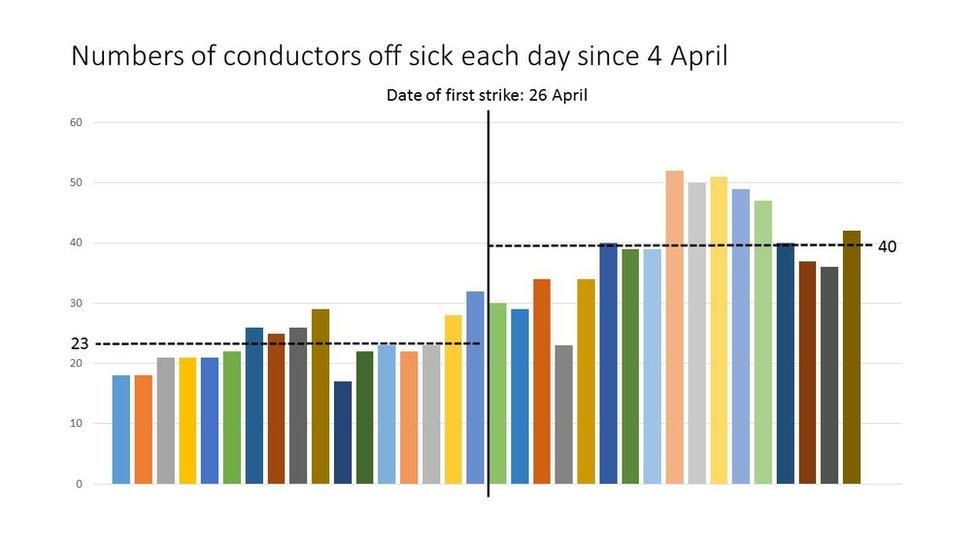
GTR said train conductors had called in sick more than 1,000 times in a month
The rate of sickness among Southern rail conductors has more than doubled since the first strike over their role.
Data released by the operator shows in the last 32 working days the company has been hit by 1,066 days of absence.
Govia Thameslink Railway (GTR) said an average of 83 services were being cancelled every day due to sickness.
The RMT union said cancellations were due to the firm's "continued mismanagement" of the franchise, and not enough staff were being employed.
"They do that because it saves them money and allows them to pump up the profits which can then be shipped across the Channel to subsidise their operations in France," general secretary Mick Cash said.
Union members staged their first strike action on 26 April, followed by a second day of action on 18 May.
The RMT opposes a new on-board supervisor role and plans for drivers to operate doors.
The operator has insisted there will be no job losses or pay cuts, and the proposals would be implemented.
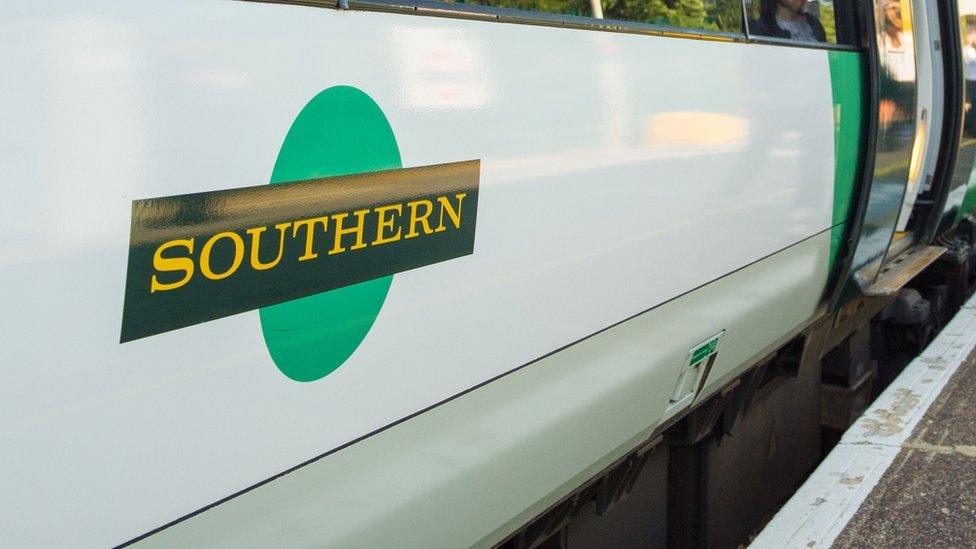
The RMT opposes a new on-board supervisor role and plans for drivers to operate doors
GTR said in the two weeks prior to the first strike, there was an average of 23 conductors off sick each day.
Since the strike, that number had nearly doubled to 40 conductors a day, with the figure increasing to 45 in the last 10 days.
It added that the figures amounted to one-in-six conductors having had a day's sickness in the last month.
A GTR spokesman said it was offering support to "those conductors who are ill and working out how they can get back to work".
"These figures show a remarkable and unprecedented level of sickness absence which commenced at the time of the first strike.
"We are presently looking into what steps can be taken to investigate this deterioration in the health of conductors across the south of England."
The company operates services in London, Sussex, Surrey, Kent and Hampshire and employs 470 conductors across the network.
- Published18 May 2016
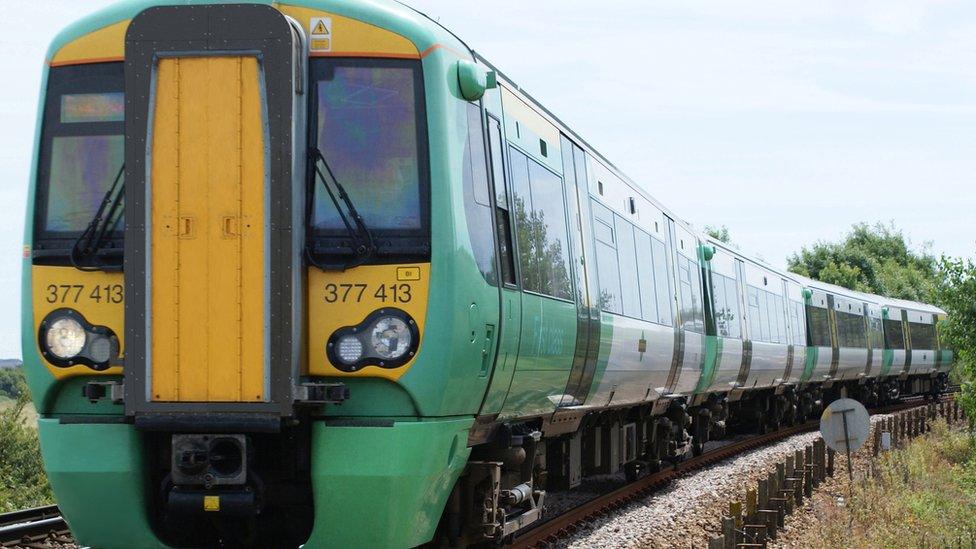
- Published17 May 2016
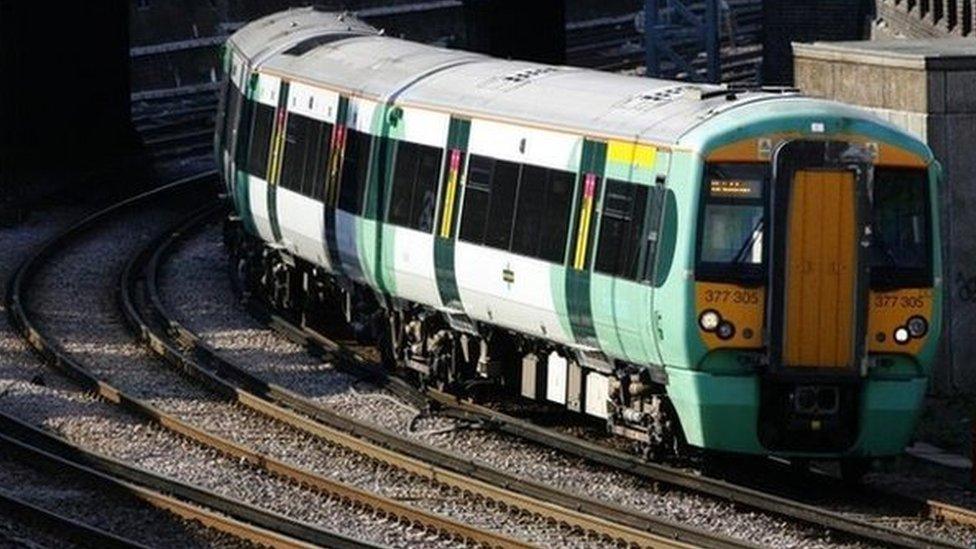
- Published10 May 2016

- Published4 May 2016

- Published29 April 2016

- Published27 April 2016

- Published27 April 2016
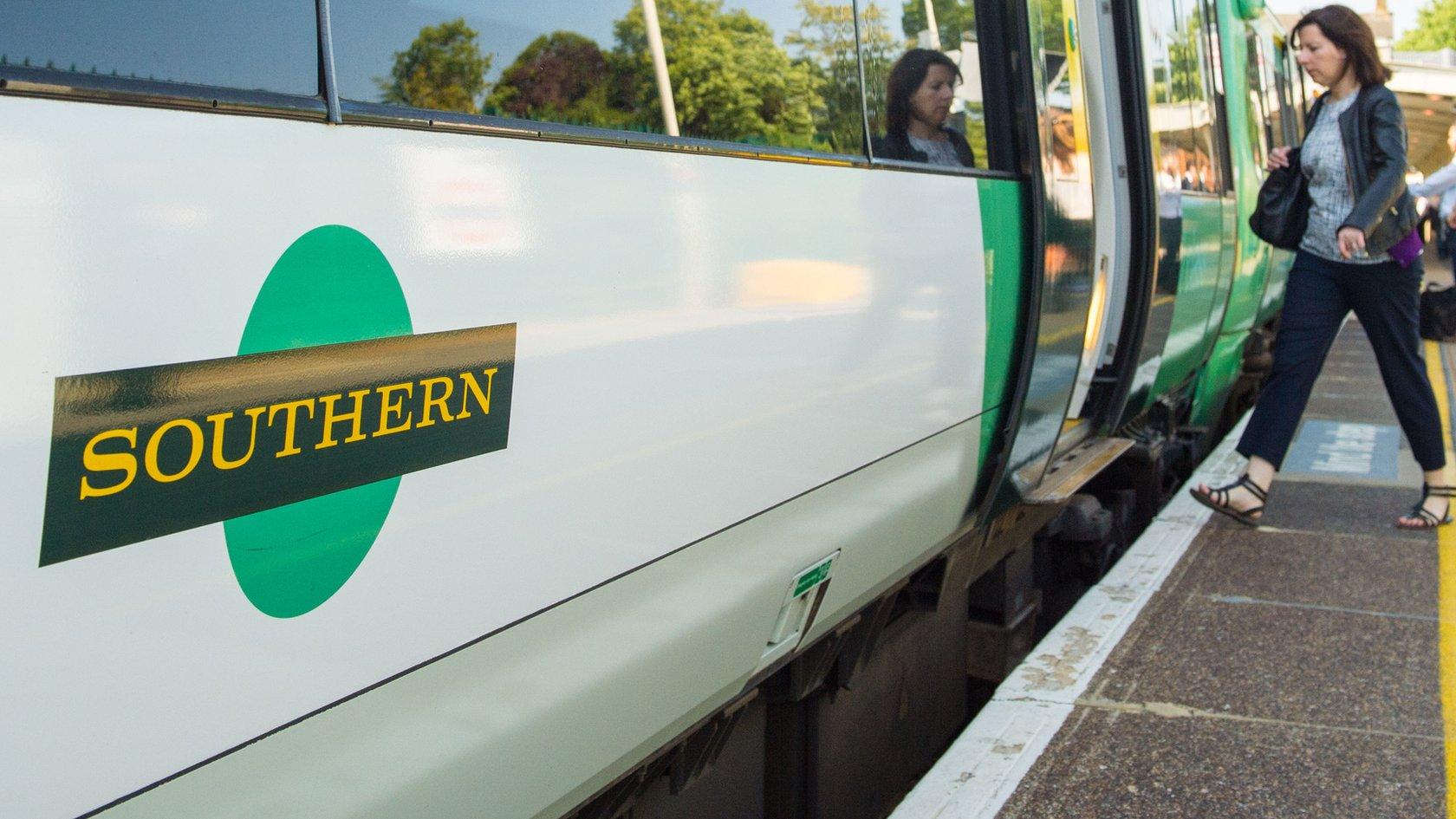
- Published25 April 2016
